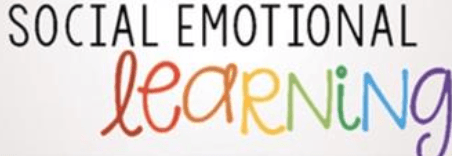Self-awareness is the ability to be aware of how you think, feel, and act, as well as that of how it affects people. This has two integral parts
Self-awareness is the cornerstone of both personal and professional success. Within formal settings, such as work, meetings, or college campuses, self-awareness contributes much to developing good communication skills, strong interpersonal relationships, and informed decisions. The following blog discusses what self-awareness is, how it works in formal settings, and strategies for improvement.
What is self-awareness?
Self-awareness is the ability to be aware of how you think, feel, and act, as well as that of how it affects people. This has two integral parts:
Internal Self-Awareness: Knowledge of your value, strengths, weaknesses, and emotional triggers.
External Self-Awareness: How your actions or presence affects others.
In formal places, achieving a balance with these parts helps you show yourself authentically but respectfully considerate about other people's views and feelings.
Why Is Self-Awareness Important in Formal Situations?
1. Enhancement of Communication
In structured environments, proper and empathetic communication is critical. Self-awareness will make you articulate your thoughts correctly while being sensitive to other's opinions, thus decreasing misunderstanding.
2. Improves Professional Relations
Self-awareness in how you behave and what happens as a result of that helps create mutual respect and trust. This can help in bonding with colleagues, clients, or peers.
3. Helps in Emotional Regulation
Formal settings require high-stakes interactions. Self-awareness enables you to manage your stress, remain composed, and handle conflicts with professionalism.
4. Fosters Career Development
You can set realistic goals and look for opportunities to develop professionally based on your strengths and areas for improvement.
5. Promotes Ethical Conduct
Knowing your values ensures that your actions are in line with organizational and societal norms, which increases your credibility.
Practical Strategies to Foster Self-Awareness in Formal Settings
1. Reflect Often
After a meeting or formal interaction, reflect on what worked well and what could be improved. Journaling helps you track patterns in your behavior and areas for growth.
2. Seek Feedback
Constructive feedback from peers, mentors, or supervisors provides valuable insights into how others perceive your actions and decisions.
3. Practice Mindful Listening
In formal conversations, focus entirely on the speaker. Avoid interrupting and consider their words carefully before responding. This builds trust and demonstrates emotional intelligence.
4. Adapt Your Communication Style
Tailor your communication to suit the audience. For instance, use formal language in professional settings while maintaining a respectful tone.
5. Monitor Nonverbal Cues
Body language, facial expressions, and voice tone all significantly contribute to how your message will be received. Pay attention to those signals so they may also mirror your intended message.
Challenge Overcoming: Biases and Blind Spots
Unconscious Bias
Everyone harbors unconscious biases. Understand them, but continue working to seek more varied input to expand your comprehension.
Fear of Feedback
It's really scary to receive feedback. Growth begins, however, by the proper way of receiving and improving upon feedback.
Time Bound
_______________
In fast-moving formal situations, it becomes impossible to pause for self-reflection. However, brief instances like immediately after a meeting may work fine.
Conclusion
Self-awareness in formal settings- That is a vital capability because it enhances communication, nurtures relationships, and supports professional development. Cultivate this excellent personality by reflecting on your actions and following the feedback that they come with, as well as maintaining mindful communication. As one takes this journey toward greater self-awareness, it transforms even your professional and personal interactions.







